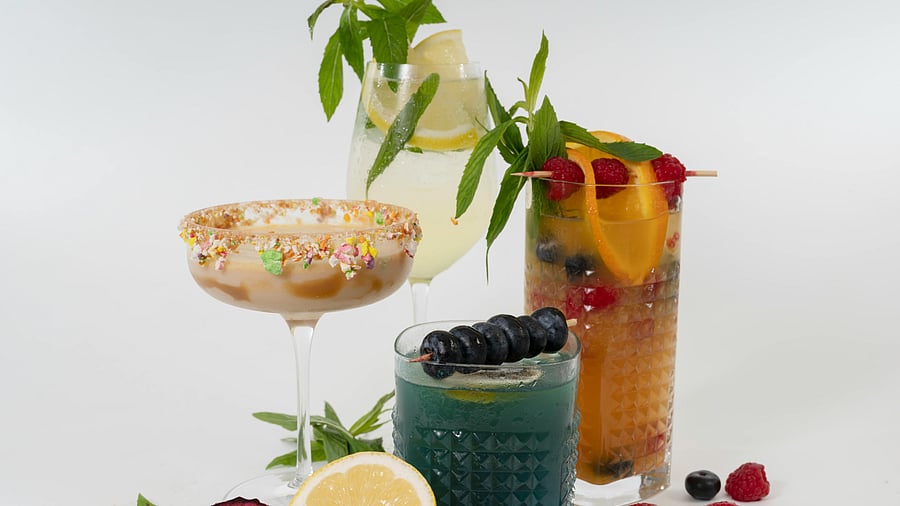
Image for representation.
Credit: Pexels
Savoury, meaty, moreish? Umami is the mysterious fifth taste that lingers on the palate and keeps you reaching for more. First identified over a century ago by Japanese chemist Kikunae Ikeda, umami — literally “essence of deliciousness” — gives parmesan its punch, tomatoes their depth, and soy sauce its irresistible appeal.
Although long appreciated in culinary circles, umami has only recently become a global buzzword in food and drink cultures. Unlike sweet, salty, sour, or bitter, umami is subtler — derived from glutamates, the amino acids found in aged cheese, seaweed, cured meats, mushrooms, fermented foods, and broths. It coats the palate with complexity, comfort, and richness.
Now, this elusive taste is not just on our plates — it’s also in our glasses.
Global to local: Umami in focus
When Chef Dharshan Munidasa of Sri Lanka’s Ministry of Crab curated a pairing menu for the Indian launch of Johnnie Walker Blue Label ‘Elusive Umami’, he emphasised that the true secret lies in knowing ingredients at their freshest — and coaxing out their natural savouriness. “It’s what separates good food from great,” he said. “It’s what makes you take another bite, not because it’s sweet or salty, but because it satisfies something deeper.”
The limited-edition whiskey aims to capture umami’s complexity, with layers of sweet smoke, cured meat, and subtle saltiness. With only 2,000 bottles per region, its rarity reflects the challenge of capturing umami in spirits.
But it’s not just global brands leaning in. Indian innovators are making umami their own.
The Indian umami wave
Take Bengaluru’s Mossant, for instance — a kombucha and sparkling tonic brand by Adithya Kidambi and Shishir Sathyan. Their fermented drinks tap into umami’s potential with earthy, tangy, and subtly funky notes.
“Fermentation deepens flavour,” explains Kidambi. “Our Salted Lime Kombucha blends citric sharpness with salt — enhancing umami, stimulating salivation, and elevating the non-alcoholic drinking experience.”
Cyriac Thomas, another homebrewer-turned-entrepreneur, unexpectedly discovered a demand for his kombucha. “I was bringing bottles to football watch parties,” he recalls. One landed with Pune restaurateur Gayatri Desai — and soon he was supplying 90 bottles a week. His brand, Umami Brew, now offers bold, preservative-free flavours like kokum-ginger, spiced kairi, and salad bar — all with a 12-month shelf life, thanks to fermentation-led R&D.
Was umami always here?
Yes, we just didn’t have a word for it. India’s own feni and mahua, both GI-tagged heritage spirits, have long offered umami-rich depth. Today, they’re being reimagined in briny, savoury cocktails by a new wave of bartenders.
Pistola Agavepura, made with Indian-grown blue agave, offers earthy, vegetal complexity, echoing tequila with subtle regional inflections. Coconut feni has nutty, tropical funk, while cashew feni delivers aged cheese-like depth. Mahua’s wildflower distillate is mushroomy, foresty, and truly unique.
These spirits have trained Indian palates to appreciate umami, long before it had a name.
Mixology meets fermentation
At Copitas in Four Seasons Bengaluru, bar manager Sher Thakur encourages adding umami-rich ingredients like miso, seaweed, roasted fruits, and fermented components to cocktails. He believes aged tequilas, sherries, and whiskies bring a natural savoury lift.
Across India, young chefs and bartenders are getting platforms and funding to experiment. Ingredient-forward collaborations, like Thomas’ pumpkin miso latte kombucha for Veronica’s in Mumbai or a chocolate-orange flavour inspired by a German-Israeli dessert at Sapa Bakery in Mysuru, are energising the food and beverage scene.
Umami is no longer a niche concept or a chef’s secret — it’s the taste of innovation. Whether in kombucha, cocktails, or classic spirits, India is finding new ways to bottle that fifth taste. And we’re all better fed, and better sipped for it.